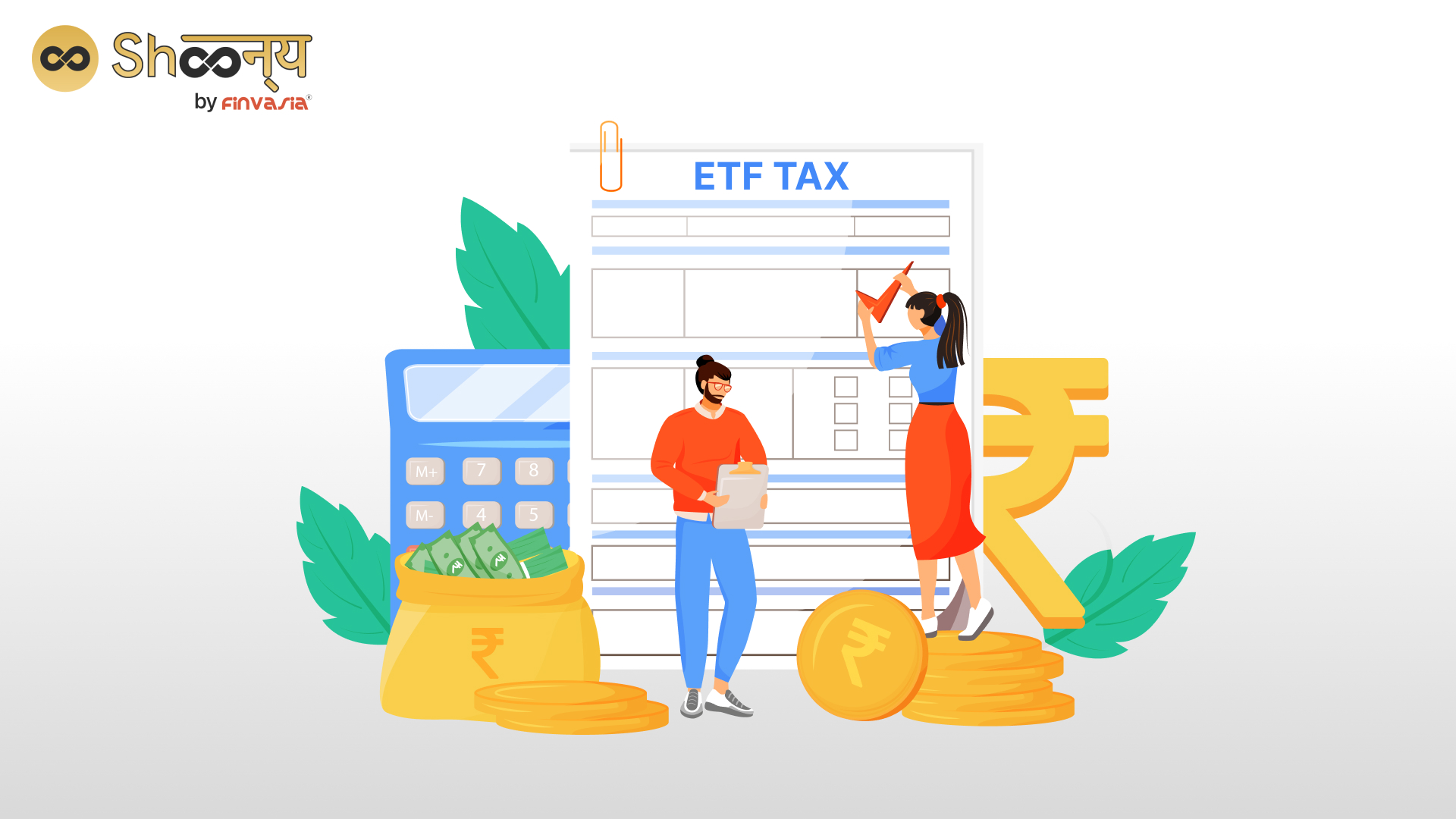Exchange-traded funds, or ETFs, have gained popularity among investors in India due to their diversification, liquidity, and cost-effectiveness. However, understanding the tax implications of ETFs is crucial before investing in them. In this article, we will delve into how ETFs are taxed in India, the various types of ETFs, and the tax benefits that come with investing in them.
How are ETFs taxed in India?
The taxation of ETFs in India is determined by two key factors: the type of ETF and the holding period of the investment. The type of ETF relates to the underlying asset class, which can be broadly categorized into equity, gold, and others. Equity ETFs invest in equity shares, gold ETFs deal with physical gold assets, and other ETFs cover various financial instruments, including fixed-income securities, currencies, commodities, and international indices.
The holding period of an ETF refers to the duration for which an investor holds the ETF before selling it. This holding period dictates whether the capital gain from the sale is categorized as long-term or short-term. Long-term capital gain (LTCG) is applicable when the holding period is over 12 months for equity ETFs and 36 months for other ETFs. Short-term capital gain (STCG) occurs when the holding period is less than or equal to 12 months for equity ETFs and 36 months for other ETFs.
The tax rates for capital gains from ETFs in India are as follows:
- For equity ETFs, LTCG is tax-exempt up to Rs. 1 lakh per financial year and taxed at 10% without indexation benefit for amounts exceeding Rs. 1 lakh. STCG is taxed at 15%.
- Gold ETFs are subject to a 20% tax on LTCG with indexation benefits. STCG is added to the investor’s income and taxed according to their applicable income tax slab rates.
- Other ETFs also face a 20% tax on LTCG with indexation benefit, while STCG is incorporated into the investor’s income and taxed as per their income tax slab rates.
In addition to capital gains, dividends are another source of income from ETFs. These periodic payouts to investors are taxable based on their income tax slab rates, with no dividend distribution tax (DDT) applied to ETFs.
What are the tax benefits of investing in ETFs?
There are multiple ETF tax benefits in India:
- Tax Efficiency: ETFs are more tax-efficient than other mutual funds due to lower portfolio turnover and expense ratios. Lower turnover results in reduced capital gains tax liabilities, and transaction costs. Meanwhile, a lower expense ratio translates to lower fund management costs and higher investor returns.
- Indexation Benefit: ETFs are eligible for indexation benefit, allowing the cost of acquisition to be adjusted for inflation when calculating capital gains. This reduces the taxable capital gain and the associated tax liability.
- Tax Deduction under Section 80C: If ETFs are part of the Equity Linked Savings Scheme (ELSS), they qualify for a tax deduction under Section 80C of the Income Tax Act, 1961. ELSS is an equity mutual fund with a lock-in period of three years, enabling investors to save up to Rs. 1.5 lakh per financial year.
How do you file income tax returns for ETFs?
Investors with income from ETFs must report it in their income tax return (ITR) and pay the relevant tax. The specific ITR form and due date depend on the nature and amount of income from ETFs and other sources.
- For investors with only capital gain income from ETFs, using ITR-2 and filing by the 31st of July is applicable. Those with both capital gain income from ETFs and other income types, such as salary or business income, should use ITR-3 and meet the deadline of either the 31st of July or the 30th of September, depending on audit requirements.
Investors earning over Rs. 50 lakh in a financial year from ETFs must disclose their assets and liabilities in Schedule AL of the ITR form. If the income from ETFs exceeds Rs. 2 crore, they will incur a surcharge on their tax liability.
In case of a loss from ETF sales, investors can carry it forward for up to eight assessment years to offset against future capital gains. However, adhering to the due date for filing the ITR is crucial to claim this benefit.
Conclusion
While ETFs offer a convenient and cost-effective way to diversify your investment portfolio, understanding the tax implications is essential. Consider consulting a tax professional to make informed decisions about investing in ETFs and optimizing your tax benefits.
FAQs
ETFs provide several tax benefits, including exemptions on long-term capital gains (LTCG) up to Rs. 1 lakh and lower tax rates on gains exceeding this threshold.
STCG on ETFs is taxed at the individual’s applicable income tax slab rate, making it imperative to consider your tax bracket when investing.
Gold ETFs are taxed similarly to debt ETFs, with the holding period determining whether gains are categorized as short-term or long-term.
Yes, you can offset losses from one ETF against gains from another ETF, effectively reducing your overall tax liability.
Yes, certain tax-saving ETFs, such as Equity-Linked Savings Schemes (ELSS) ETFs, offer deductions under Section 80C of the Income Tax Act.
Yes, ETF dividends are taxable in the hands of investors based on their applicable income tax slab rate.
NRIs can invest in ETFs in India, and the tax treatment depends on their residential status and the type of ETF they choose.
While there are no specific tax deductions for ETFs, they offer tax benefits through exemptions and lower tax rates on LTCG.
ETF investments themselves do not qualify for deductions under Section 80C, but tax-saving ETFs like ELSS ETFs offer deductions.
To minimize the tax impact, consider holding ETFs for the long term to benefit from LTCG exemptions and strategize your portfolio to align with your financial objectives.
______________________________________________________________________________________
Disclaimer: Investments in the securities market are subject to market risks; read all the related documents carefully before investing.

